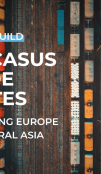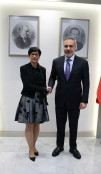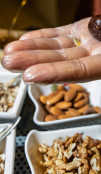A story of hope rising from Gevaş: The women of Ahtamara
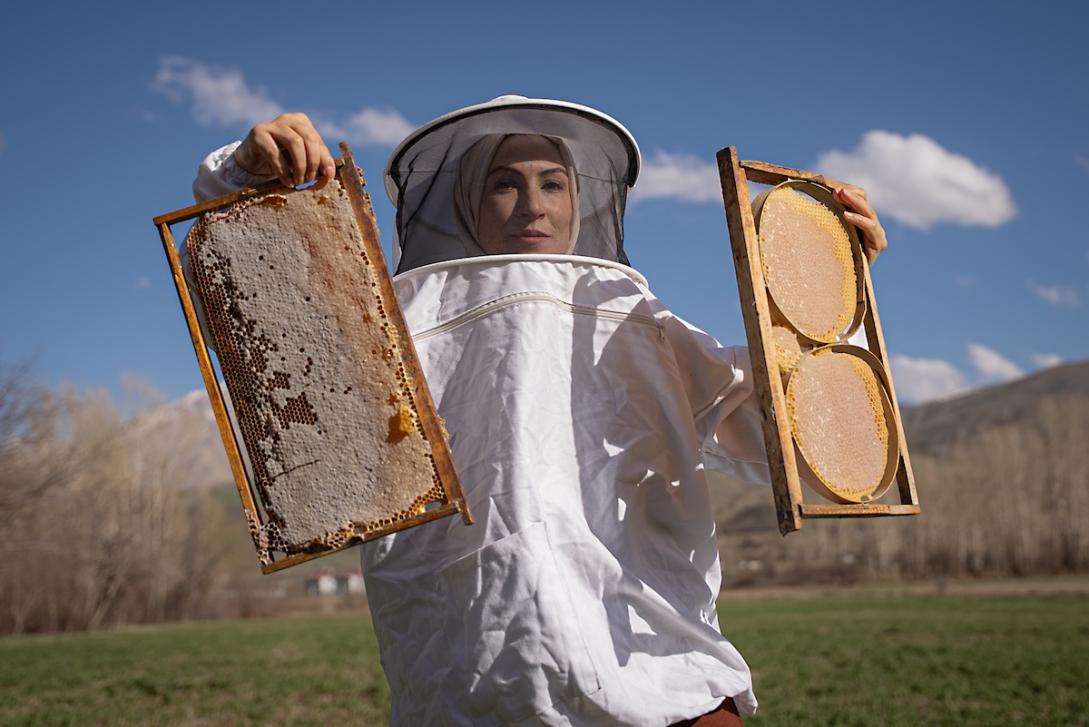
Zeynep Bayezit, one of the members of the co-operative, is a beekeeper as well as a farmer.
Aycan, Devrim, Mayıs, and Zeynep helped set up the Ahtamara Agricultural Development Women’s Co-operative. Established in 2021, it was supported by the EU’s “Promoting Resilience through Improved Livelihoods” project and implemented by the United Nation’s Food and Agriculture Organisation (FAO).
The four of them, from the village of Güzelkonak, helped build the project around the need to produce and market food, but also to highlight the overlooked role of women in agriculture. The co-operative now has around 20 local members, empowering them to develop an economic space for women.
As part of the project, they received hands-on training in a “Farmer Field School”, helping them to grow personally and professionally.
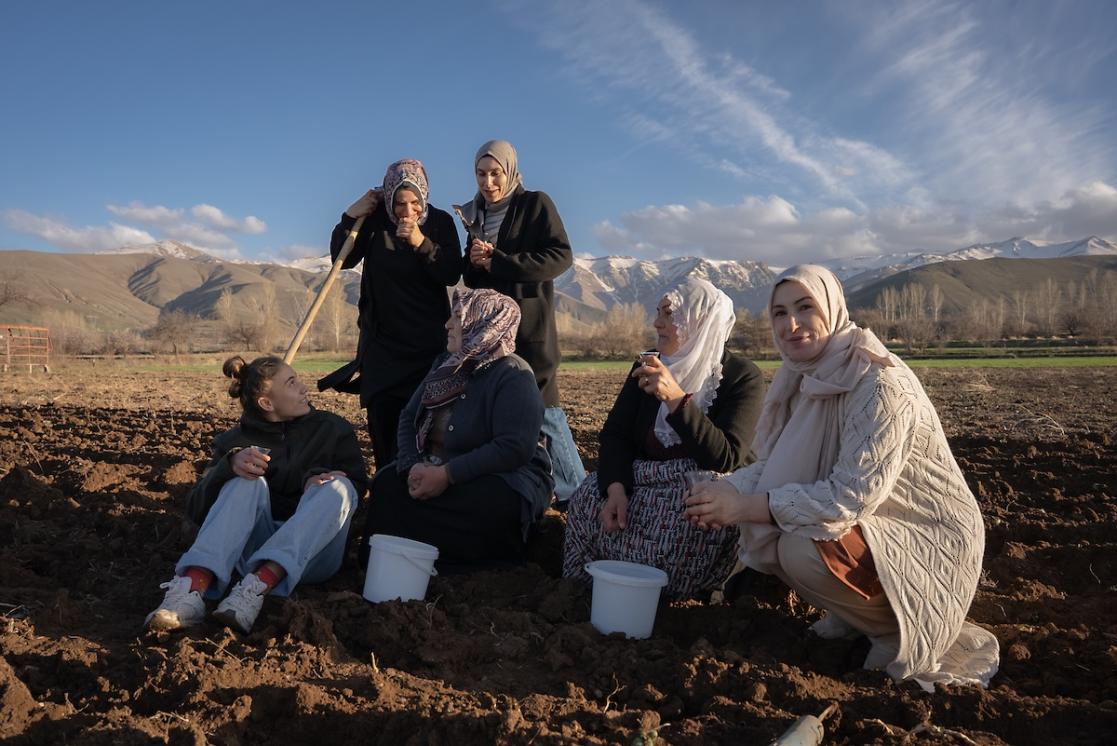
EUROPEAN UNION, 2025
What brings the women of Ahtamara together is not only the desire to produce but also to become stronger together.
From dream to action: The birth of a co-operative
Cooperative President Aycan Bayezit says the soil in the Gevaş region – near Lake Van and the Artos Mountain – is “incredibly fertile.”
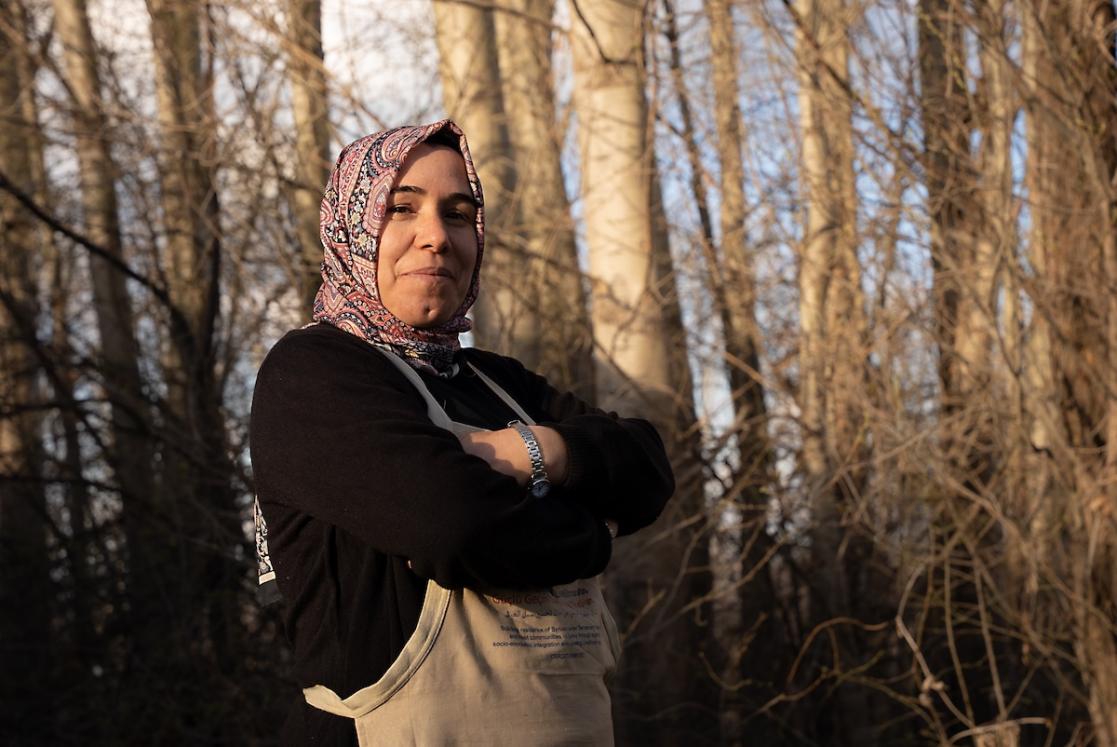
EUROPEAN UNION, 2025
Co-operative President Aycan Bayezit says that they set out to introduce the products they grow in the fertile lands of Gevaş to the whole of Türkiye.
She says: “You can grow almost anything here, so we wanted to make the most of it. Just as we eat quality, natural food, we wanted to offer the same to others. Our goal was to introduce the delicious products we grow to the rest of Türkiye.”
“We were already farmers,” Aycan continues. “In farming, women are always at the forefront—doing everything from hoeing to irrigation. But when it came to marketing the products, women were nowhere to be seen.
The men would sell the products, bring the money, and spend it as they pleased. So, we started with a bit of rebellion. We said, we’ll be part of the market, too. We’ll sell our own products. Through the cooperative, we did just that.”
Aycan says that when they first founded the cooperative, many men in the village were sceptical. “They said things like, ‘You can’t do it, it’s too much for you, how can women possibly manage this?
They thought we’d last a year at most. Now we’re in our third year—and still going strong. At first, there was prejudice, but now they see our determination and even try to be more supportive.”
From the field to the market, from home to the stage
Devrim Şeker, the vice president of the cooperative, says: “Before the co-operative, my life was limited to the fields and my home. I had no idea where my products went, how they were sold, or whether customers were happy. Now, I get clear and positive feedback—I know exactly where my efforts are going.”
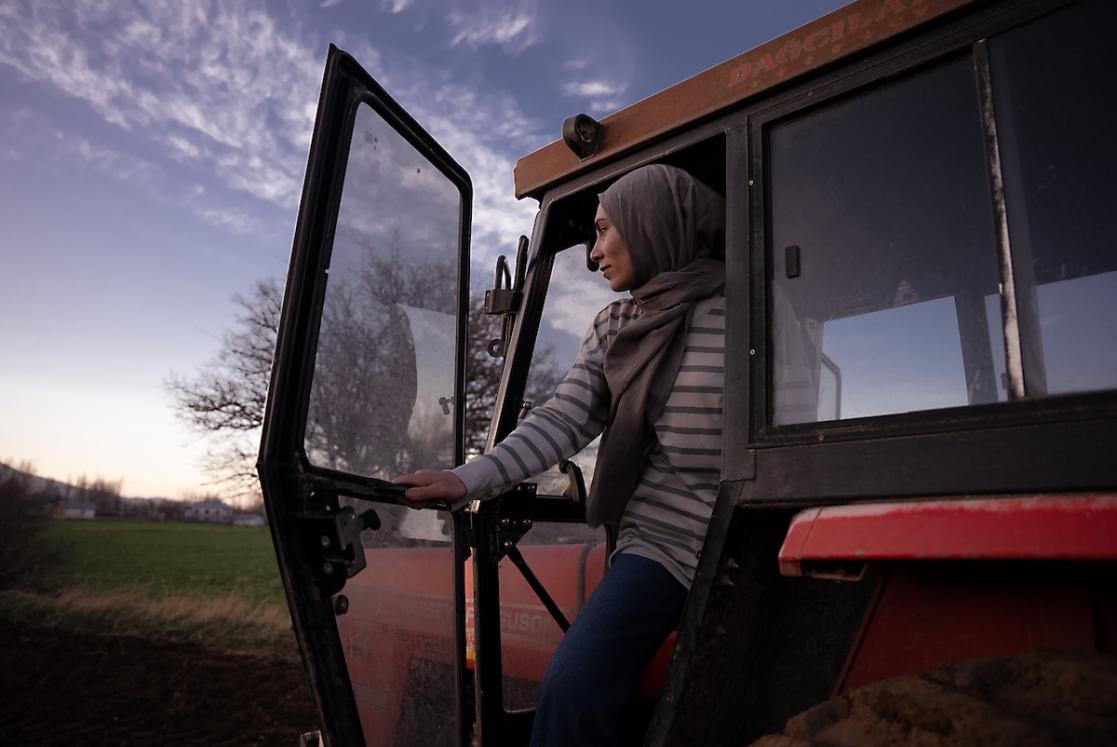
EUROPEAN UNION, 2025
Cooperative Vice President Devrim Şeker is an entrepreneur who wants to do something permanent for women.
Devrim, says she wanted to create something lasting for women. She drives her own tractor and tills the land herself.
“Men from neighbouring villages come to check whether I’ve done a good job or not. They criticise, saying you didn’t plow this well, it’s crooked. But at harvest time, our crops are always the best and most productive,” she says, beaming with pride.
Learning and growing together
In the early days, the women ran everything voluntarily. Most of the members had little work experience but held deep knowledge of the land and traditional production. With the establishment of the cooperative, they began not only producing but also making decisions, planning, and acting collectively.
Aycan says: “A co-operative isn’t just about selling products. It’s about trust and solidarity. The women here have learned not only how to earn money, but how to express themselves and find collective solutions.”
Co-operative member Zeynep Bayezit is both a farmer and a beekeeper. “Our bees collect pollen from the high mountain herbs and incense flowers. That’s what gives our honey its unique flavour,” she explains.
“Life became more colourful after the co-operative. We socialised more, met new people, and had opportunities to travel. In a way, the co-operative gave us freedom,” Zeynep says.
“Before, we only produced in our own homes. Now, we discuss how to brand our products, what kind of packaging and labels to use. We even learned what to say when selling our products.”

EUROPEAN UNION, 2025
Mayıs Şeker, one of the co-operative members, had the opportunity to expand their family business thanks to the project’s grant program.
Mayıs Şeker, also a cooperative’s member, expanded her family’s trout farm with the help of FAO’s Micro-Agriculture and Food Grant Programme for family-run businesses owned by Turkish citizens or refugees.
“Before the co-operative, my family and I—my parents and siblings—ran a trout farm,” Mayıs says. “After joining the co-operative, I applied to the grant program. When my project was approved, we expanded the business. Since the project was in my name, the license was issued to me. In a way, I went from being a worker to becoming a boss,” she laughs.
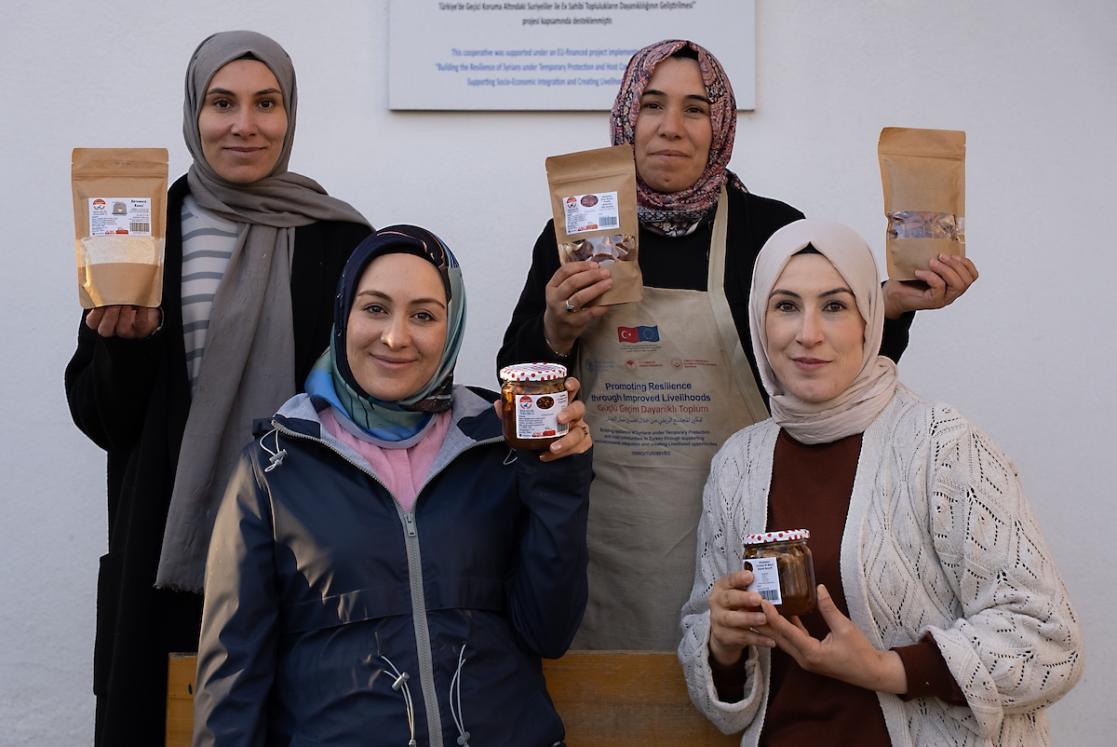
EUROPEAN UNION, 2025
After harvest, they process and package their products and sell them at their own stands at the Gevaş island pier and on the e- commerce platform implemented within the scope of the project.
A hub of production, transformation, and solidarity
The Ahtamara Agricultural Development Women’s Co-operative is not just a production hub—it’s a centre of transformation and solidarity. The women cultivate dry beans, apricots, apples, tomatoes, cucumbers, and peppers. After harvesting, they process, package, and sell their products at their own booth at the Gevaş island pier, as well as on the e-commerce platform (‘www.HepYerinden.coop) implemented within the scope of the project.
As Devrim says: “Women who once hesitated to speak up now confidently share their ideas at cooperative meetings. This is not just an economic change—it’s a social one.”


